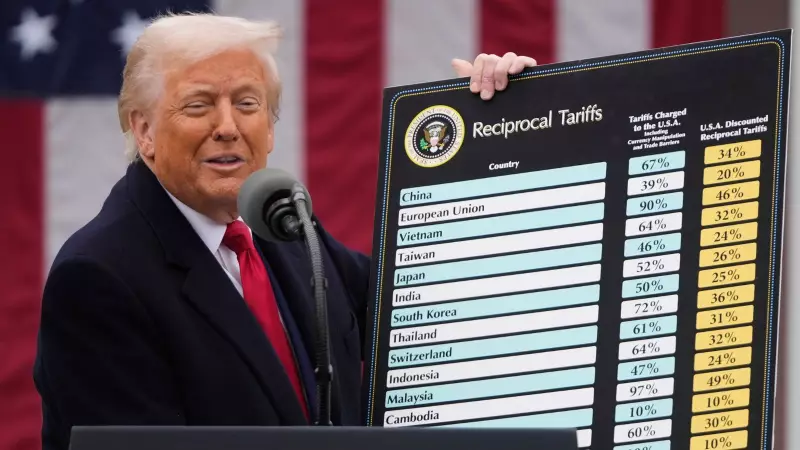
Former US President Donald Trump has issued a stark warning about potential economic disaster facing the United States if the Supreme Court rules against presidential authority to impose tariffs. The Republican leader made these comments during a crucial legal battle that could reshape trade policy and executive powers.
The Legal Battle Over Presidential Tariff Powers
Donald Trump strongly defended his administration's trade policies while speaking about an ongoing Supreme Court case that challenges the extent of presidential power in imposing tariffs. The former president argued that ruling against this authority would create catastrophic economic consequences for the United States.
This legal confrontation emerges from Trump's controversial decision to implement steep tariffs on various imported goods during his presidency. The case specifically examines whether the president overstepped constitutional boundaries when imposing these trade barriers without explicit congressional approval.
Trump's Defense of His Trade Policy Legacy
During his remarks, Trump emphasized that the tariff powers he exercised were essential for protecting American industries and workers. He portrayed these trade measures as vital tools for negotiating better deals with other countries and bringing manufacturing jobs back to the United States.
The former president highlighted that multiple administrations, both Democratic and Republican, have utilized similar tariff authorities throughout history. He warned that stripping future presidents of these powers would leave the country vulnerable in international trade negotiations and weaken America's economic position globally.
Potential Consequences of an Unfavorable Ruling
Trump outlined several dire scenarios that could unfold if the Supreme Court rules against presidential tariff authority. He predicted massive economic disruption, loss of negotiating leverage with trading partners, and potential collapse of domestic industries that depend on tariff protections.
The former president specifically mentioned that countries like China would benefit tremendously from such a ruling, as they would face less resistance when dumping cheap products in American markets. He also expressed concern about the impact on ongoing trade negotiations and future administrations' ability to respond quickly to unfair trade practices.
This Supreme Court case represents a significant test of executive power that could have far-reaching implications for US trade policy and economic strategy. The outcome may define how much authority future presidents have in implementing protectionist measures and responding to global economic challenges.





